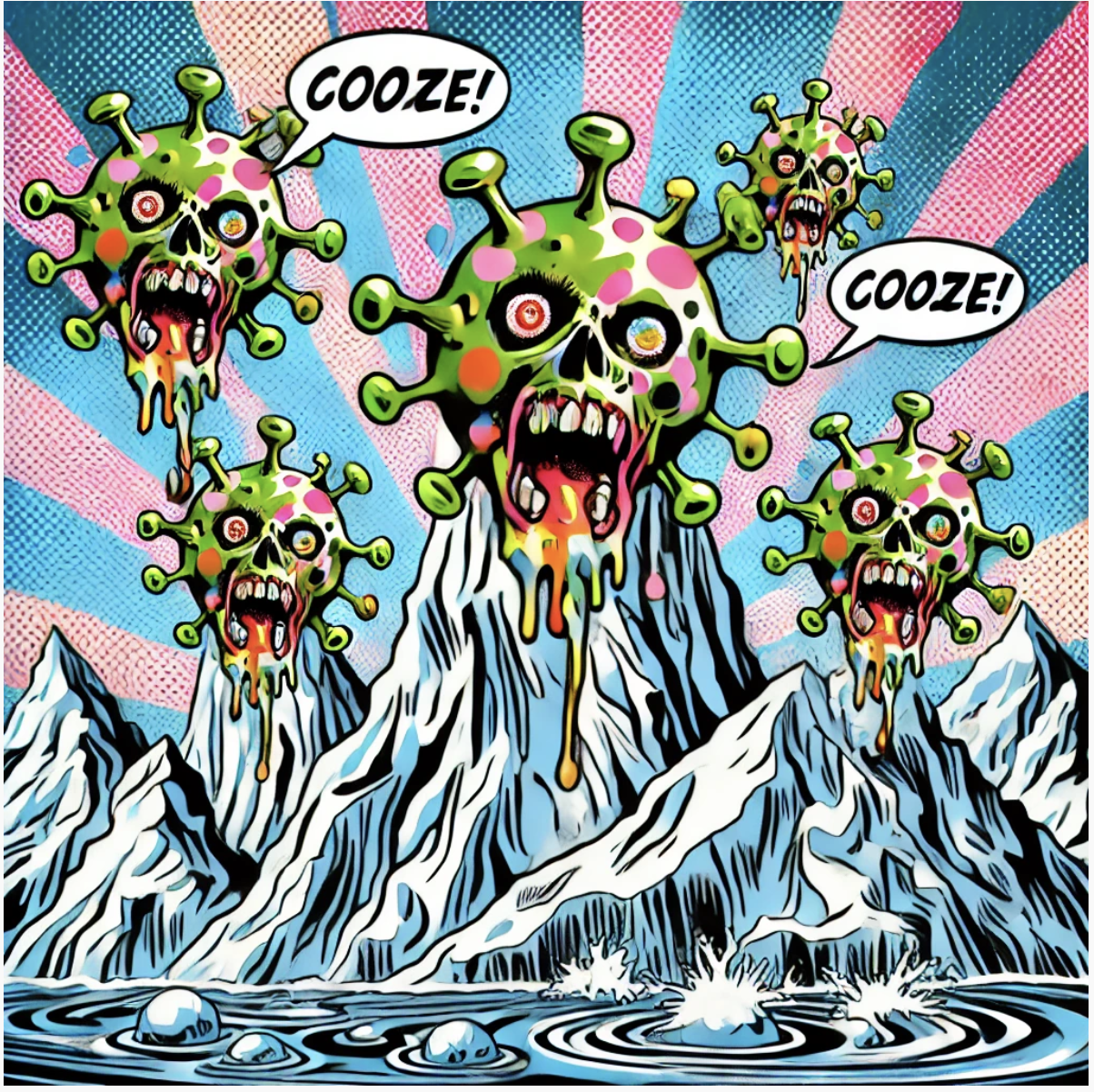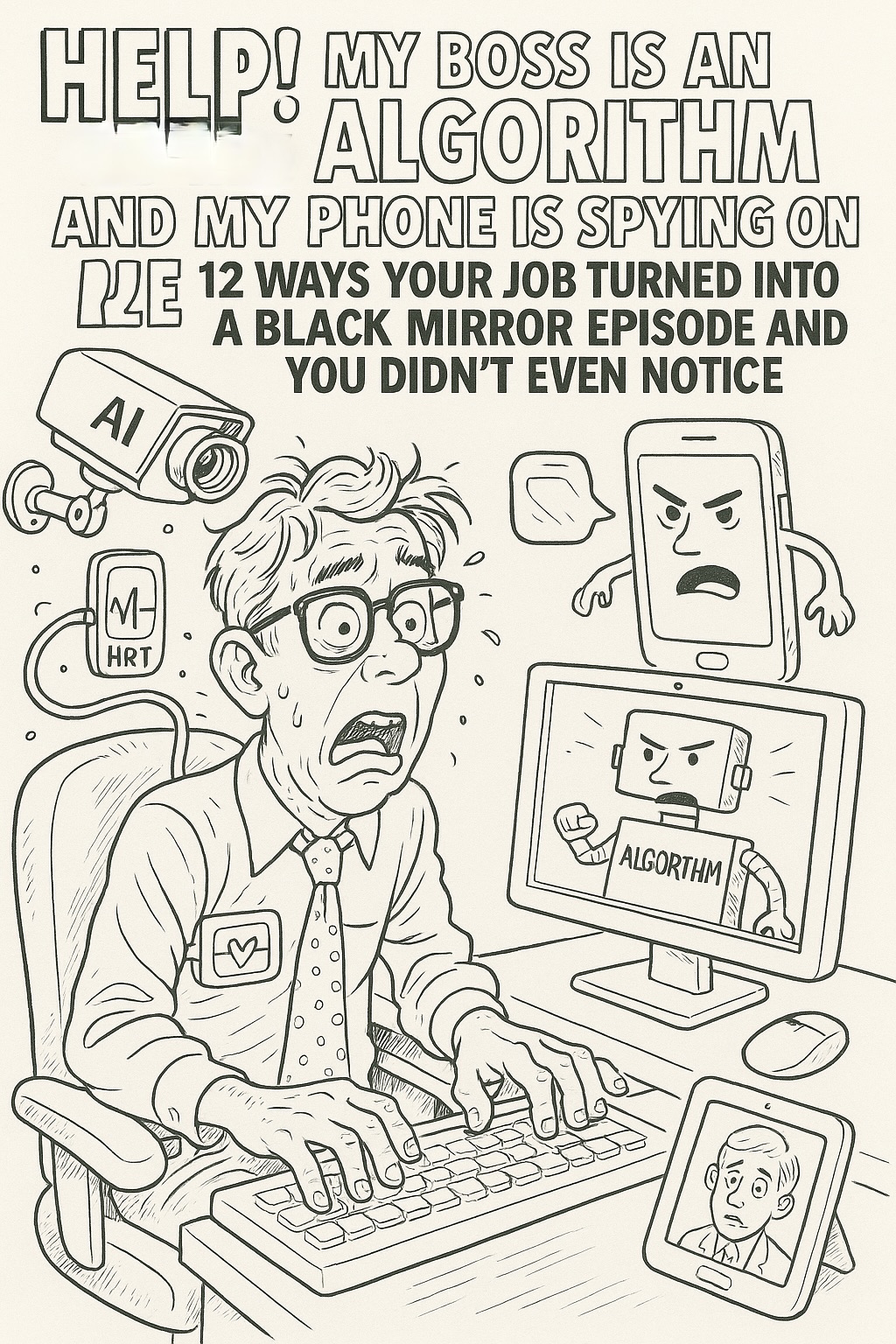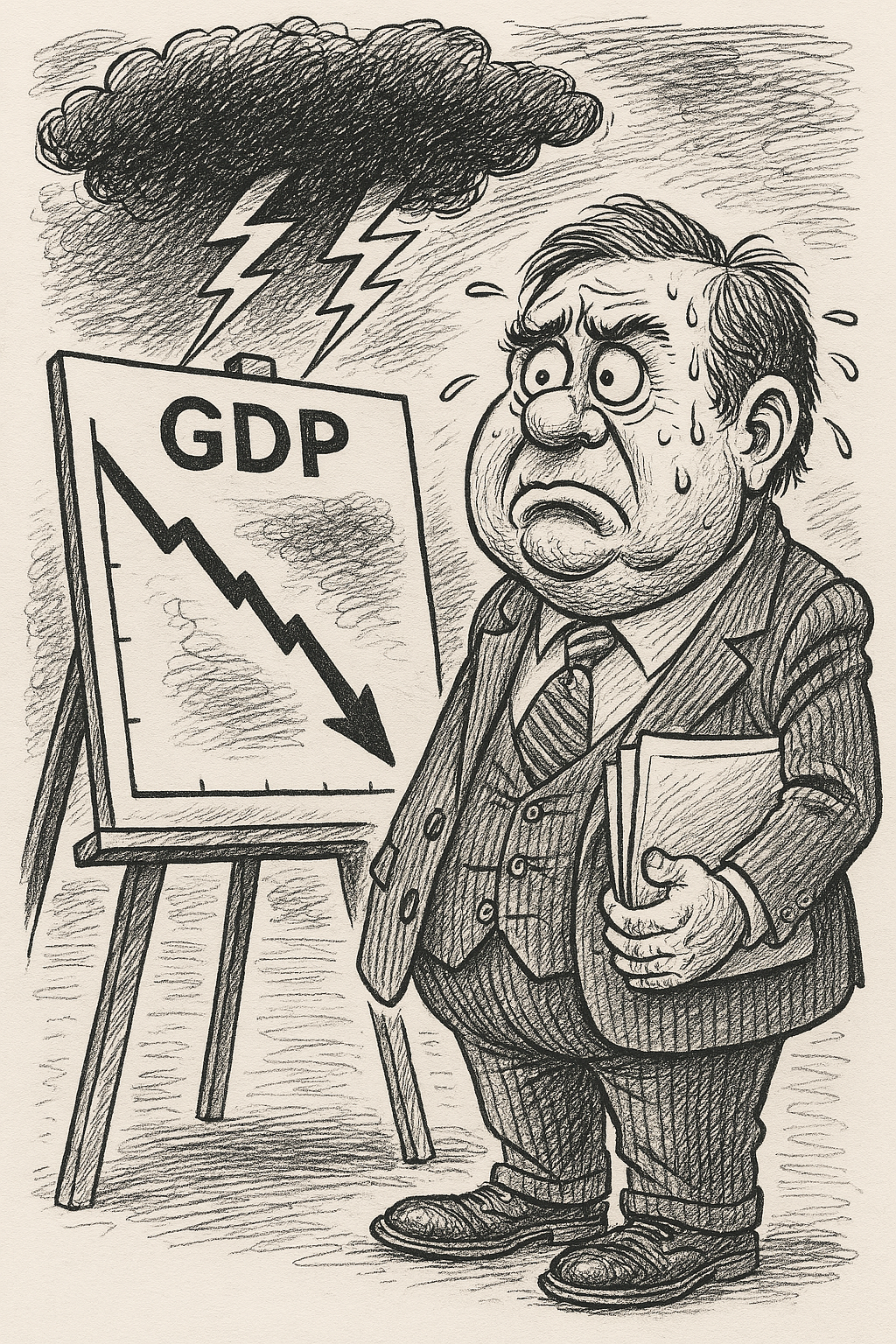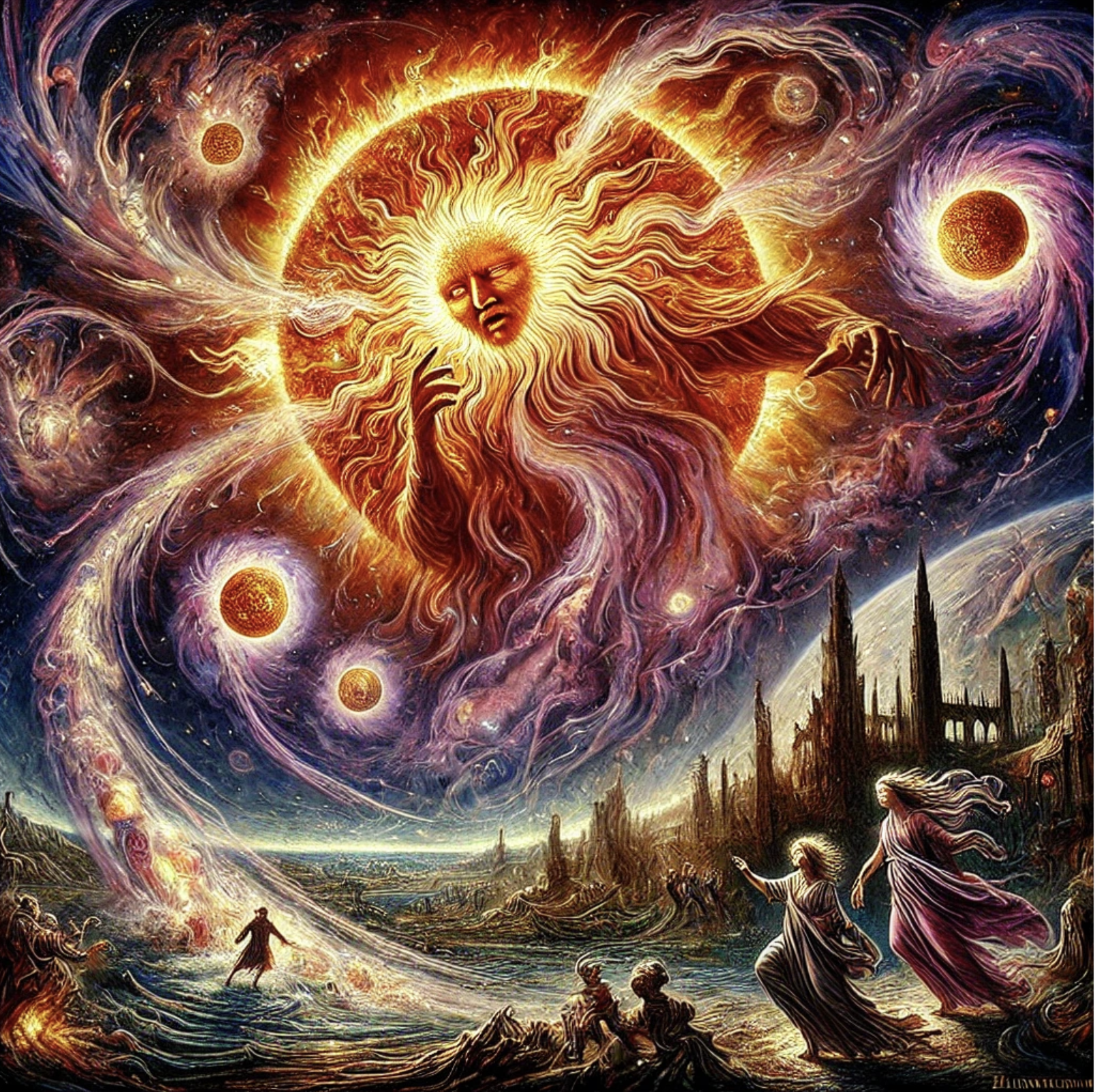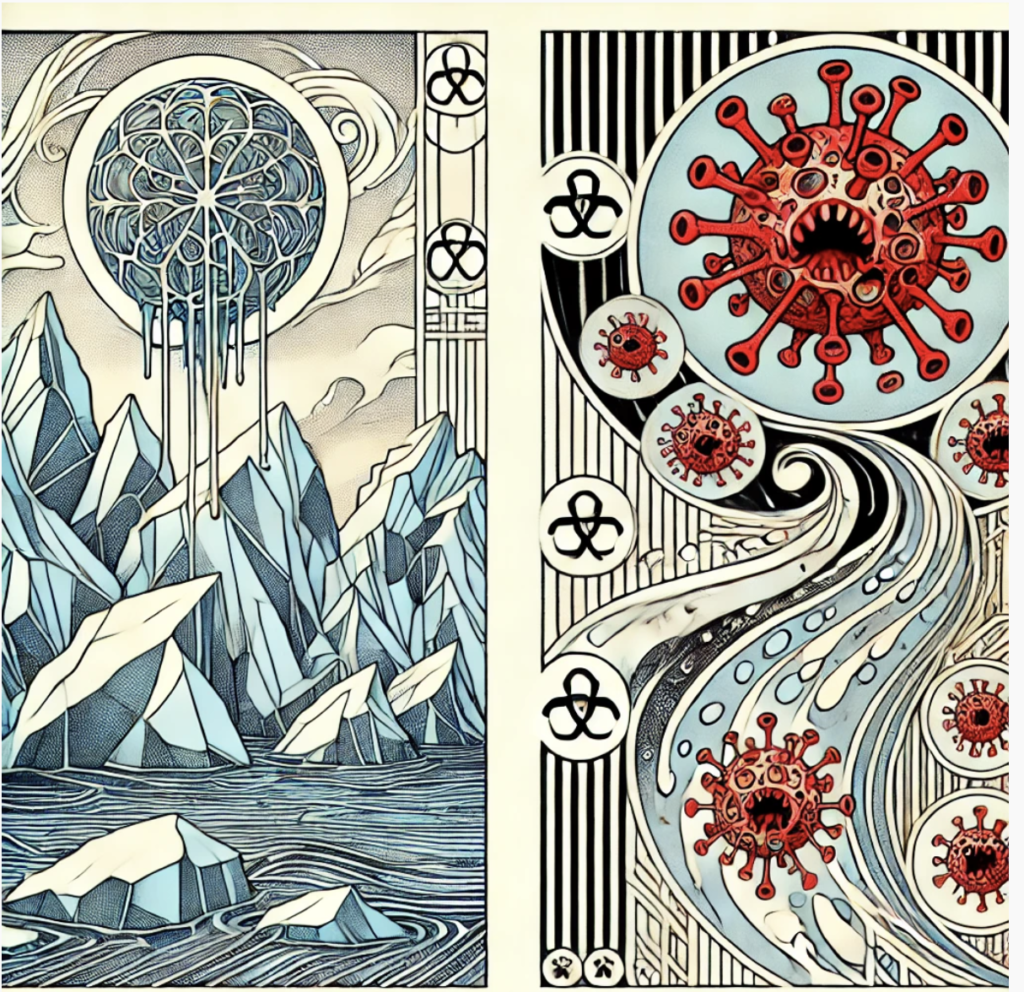
In a stunning turn of events that has scientists everywhere
clutching their lab coats in barely contained terror,
researchers have just announced that ancient viruses and
bacteria trapped in glaciers for thousands of years are
about to make a comeback. Yes, glaciers—those
majestic, icy wonders we once thought about visiting to
take deep, contemplative breaths of crisp mountain
air—are now doubling as time capsules of doom.
Just when you thought 2024 couldn’t get any weirder, here
comes the long-awaited Glacier Zombie Apocalypse, and
it’s bringing some seriously retro pathogens with it.
According to a recent study published in the Proceedings
of the Royal Society B (a journal that sounds much fancier
than the doom it’s predicting), the rapid melting of glaciers
due to climate change could potentially release a horde of
ancient viruses into the environment. These pathogens,
preserved like microscopic time capsules, could find their
way into new hosts—including humans—and unleash
diseases that haven’t seen the light of day since woolly
mammoths were a thing.
Global warming, as it happens, is the driving force behind
this new and exciting form of viral roulette. As glaciers
melt faster than the ice in your overpriced cocktail, the
chances of these viruses mingling with modern hosts
increase.
But let’s not get too carried away. The scientists, bless
their cautiously optimistic hearts, remind us that this is a
complex issue with many factors involved. In other words,
yes, the potential risk is real, but no, we don’t fully
understand it yet. So, in the meantime, why not enjoy the
slow-motion horror of watching glaciers melt while
daydreaming about the ancient pathogens they might be
unleashing? It’s like watching a disaster movie, except
you’re living in it—and also, you didn’t buy a ticket.
